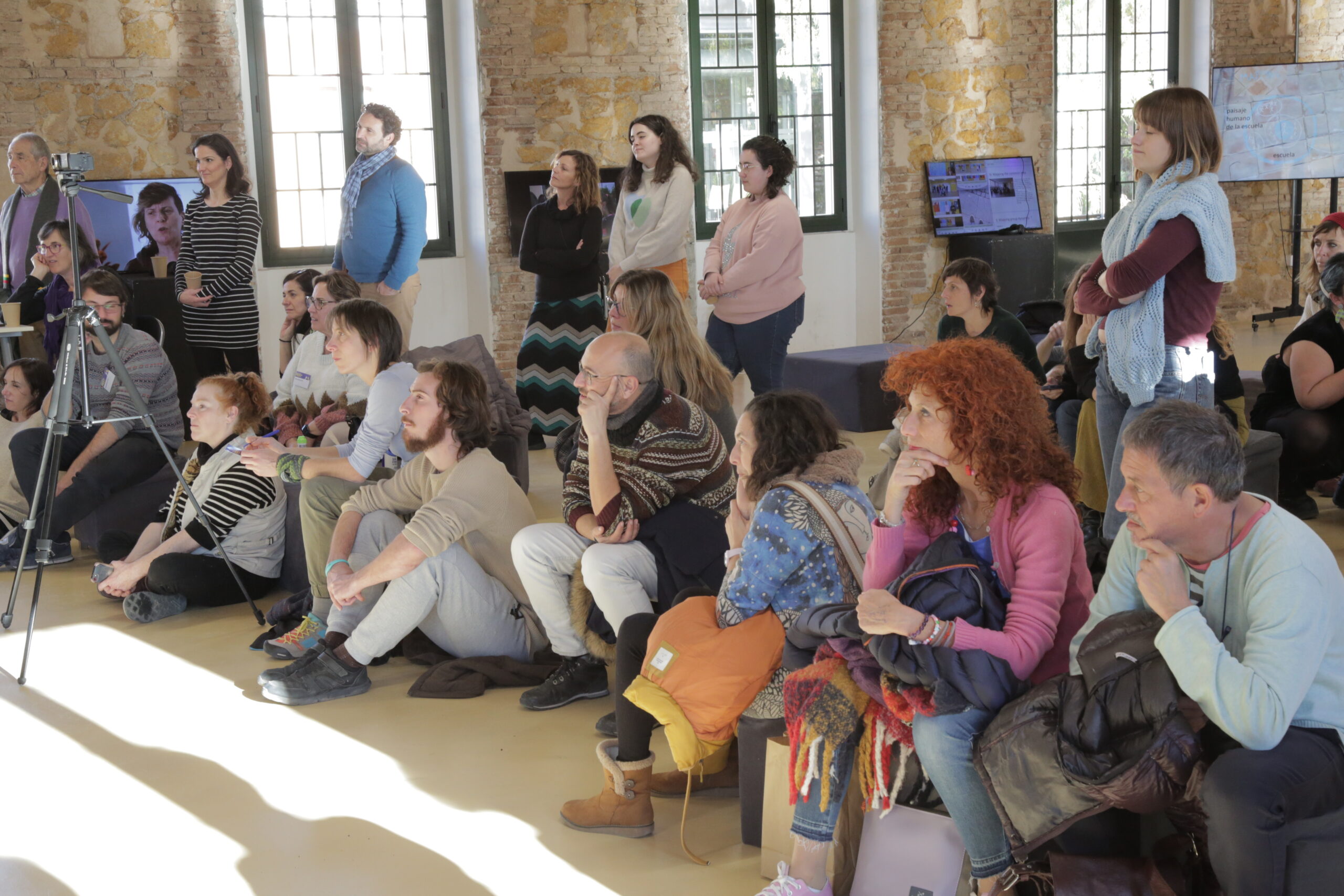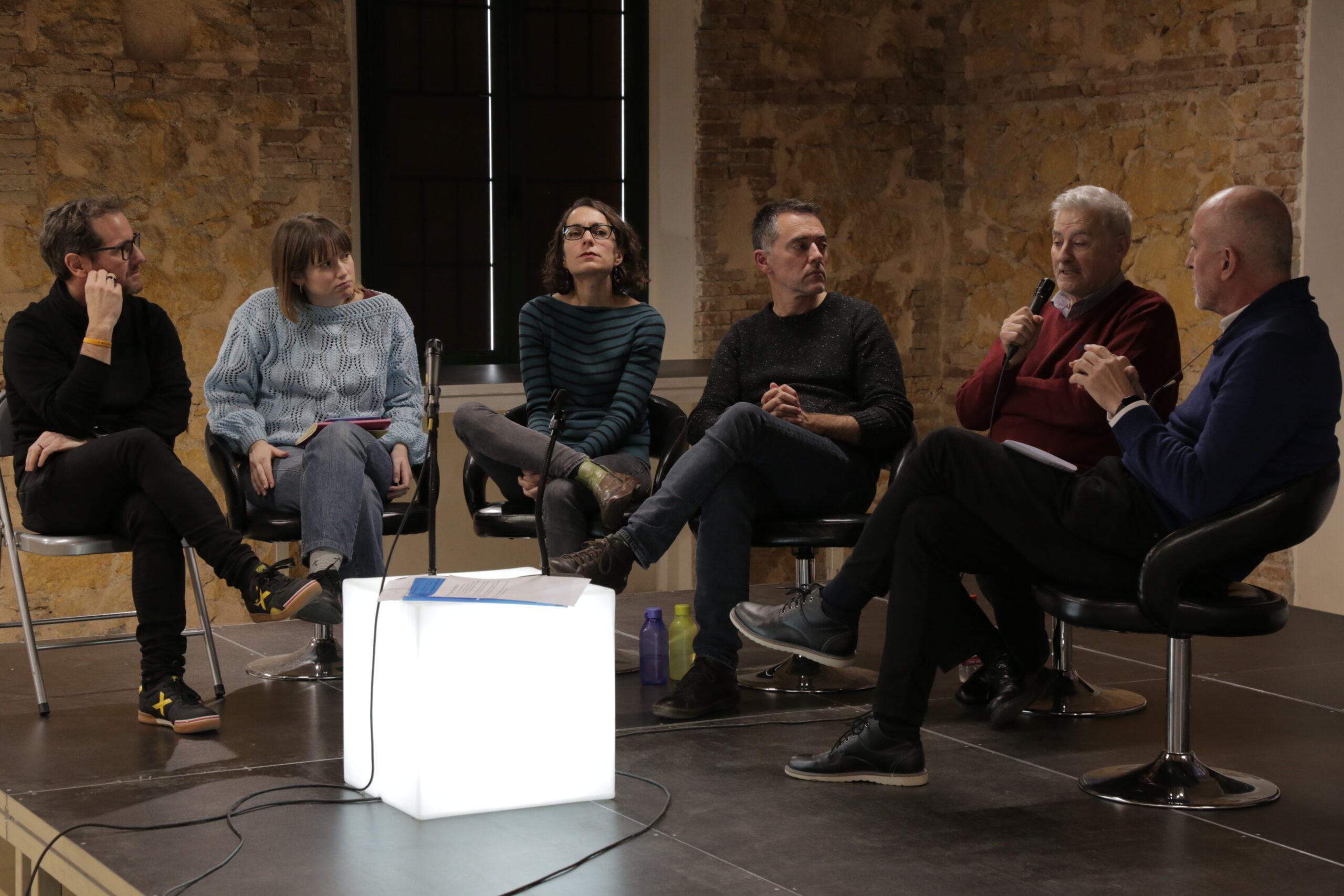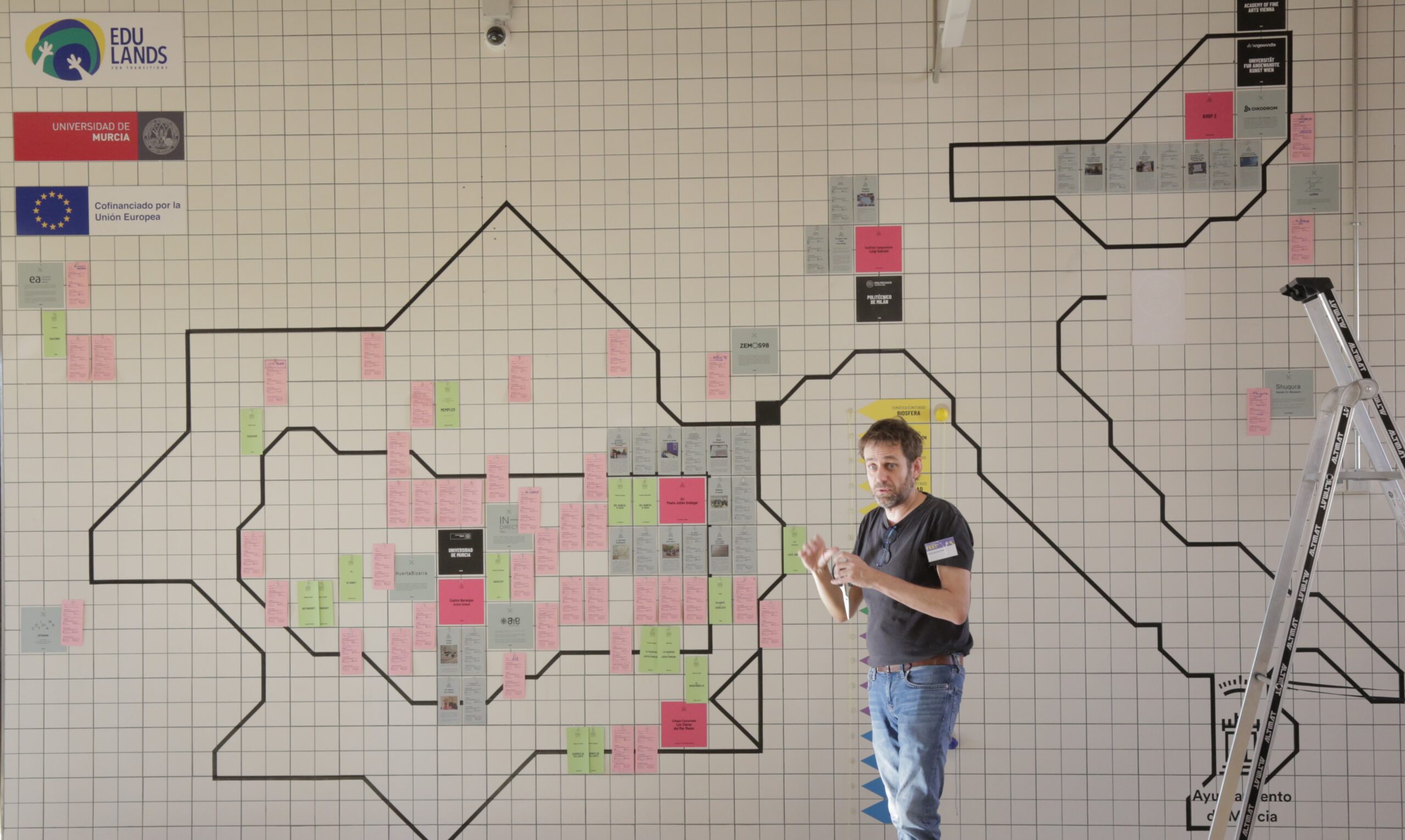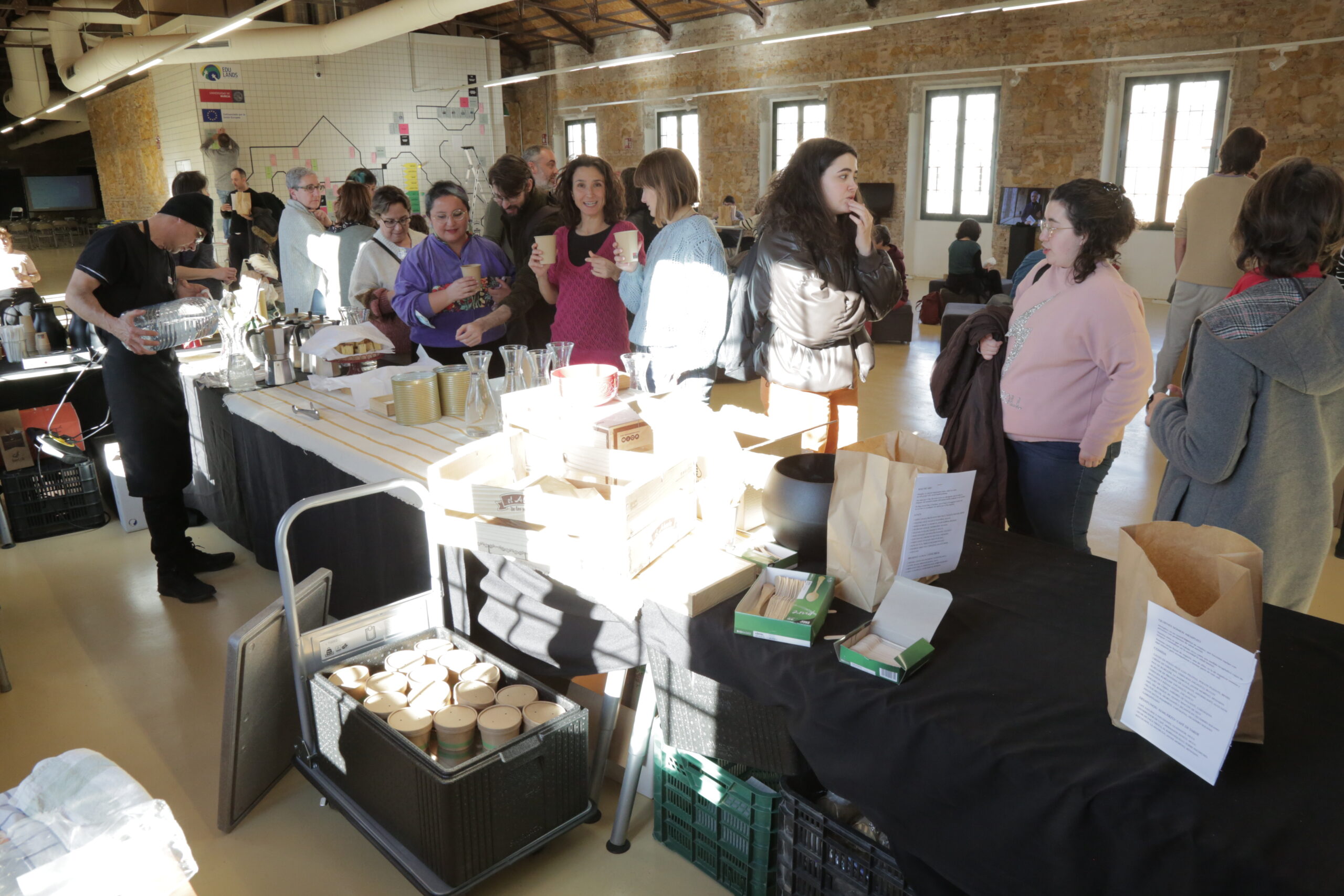


January 19th, 2023, Gemma Ureña - Cuartel de Artillería (Murcia). Pavilion 2 of Creative Production

Round table 3
Edulands Fest, the project dedicated to educational innovation and interactive learning (in which entities such as the European Union and the University of Murcia collaborate), has been a resounding success in its 2023 edition. The fair, which took place at the Cuartel de Artillería on January 19 from nine in the morning until seven in the evening, brought together dozens of attendees, including students, teachers, families, and the general public. It was a workshop that combined artistic and educational activities to stimulate the development of children and adolescents, as well as generate spaces for dialogue and exchange between different generations. In this way, the aim was to contribute to sustainable growth in primary education through a call to action with cultural elements that promote positive attitudes towards knowledge, creativity, and education from a vindicating perspective.
Visitors participated in talks and roundtables with experts in education and sustainability, who shared their knowledge and experiences on the importance of sustainable and diverse learning.
ROUND TABLE 1
"From society and concrete actions"
The landscape, school, and citizen participation came together to create transition movements from secondary education.
Antonio Abellán. eduLANDS Project. Huerta Bizarra Collective. Antonio Benito Galindo. Councilor for Education, Urban Agenda, and Open Government of the City Council of Murcia. Irene Lucas. eduLANDS Project. OIKODROM. To Zomia Collective. Cristina Alba. Cotidiana Coop. Alfonso Ruiz García. Initiative "From the Bancal to Home". Conchi Meseguer. eduLANDS Project. InDirectFilm_AEDS. Joaquín Lisón. eduLANDS Project. InDirectFilm_AEDS.
ROUND TABLE 2
"From innovation and administration"
A debate on educational innovation to connect schools with their nearby landscape.
Fernando Gea. eduLANDS Project. Director of IES Poeta Julián Andúgar (Santomera, Murcia). Representative of SEPIE. Ministry of Universities. Government of Spain. Carlos Magro. Open Education Association. Mar Dols Merle. ZEMOS98 Collective. Coordinator of the Resource Center of PLANEA, art and school network. José María Egea Fernández. Professor of Botany. University of Murcia. President of the Agroecology and Ecodesign Network. Laura Arias Ferrer. LATE Temporary Laboratory. Erasmus +LETHE Project. University of Murcia. Alejandro Egea Vivancos. LATE Temporary Laboratory. Erasmus +LETHE Project. University of Murcia.
ROUND TABLE 3
"From school and the nearby landscape"
The last round table highlighted the application of the methodology in the educational aspect. A projection of the future.
Daniel Caballero. eduLANDS Project. eduLANDS web designer and Huertolab resident (Murcia). Antonia Gómez Alcázar (Director of the Center for Teachers and Resources-CPR. Region of Murcia). Eduardo Miguel Pérez Molina (Erasmus Program Coordinator for CPR. Region of Murcia). Itziar Quintana. eduLANDS Project. Cuatronaranjos Murcia Active School. Mercedes Solé. eduLANDS Project. IES Poeta Julián Andúgar (Santomera, Murcia). José Antonio Moreno Micol. Murcia Huerta Viva Association. IES Marqués de los Vélez (El Palmar, Murcia). Susan Ríos. AYE CULTURA SOCIAL S.COOP. Murcia.
Edulands offered a space for creating and sharing knowledge, skills, and technology. The event focused on producing understanding (artistic and scientific) through the use of real-time experiences. This pedagogical tool has been designed to enable the development of sustainable practices in schools in Spain, Italy, and Austria by incorporating biosphere studies into educational programs.
New teachings and action methods were developed, linking them to different cultural aspects with qualitative data and methods. All of this was done with the help of teachers, artists, and researchers. "We want to have a global impact on education and educational institutions," emphasized Mónica G. Candela (coordinator of the Edulands project at the University of Murcia) at Edulands Fest 2023.
In the pavilion, a giant white wall stood out. Each workshop attendee was given a pink paper upon arrival: they had to fill it out with their name, the center they represented, and what interested them about the event. After the lunch break, the wall began to take shape and color, papers related to the project were glued on it; thus becoming an interactive representation of what had happened throughout the event. The interventions, speakers, participants, activities... Everything was recorded in this great didactic map.


One of the most striking aspects of the event was the social catering offered by MEMPLEO, a company that employs people with mental health problems and promotes social inclusion. Attendees enjoyed a variety of organic and regional products, from a Beniel chicken broth with meatballs to Alguazas pea protein burgers, all homemade and with a delicious smell that filled the pavilion.
Through different talks and activities such as "The Mar Menor and the experience of educational cinema", "Scenic resources applied to school and cultural mediation strategies to connect with the environment" or "Landscape as a historical agent"; the project's keys were perfectly expressed. In addition, more than 20 speakers participated. The intervention of Antonio Benito Galindo, councilor of education, stood out; however, the team of teachers and professionals played the most important role in terms of disseminating the concepts that encompass the Edulands project: sustainability, biodiversity, economy and production, mobility, and culture... They are really the ones who carry the project forward and who are committed to real change.
In summary, Edulands Fest 2023 leaves a call to action in the air to create a real interest in sustainable education and to leave behind the archaic system that currently prevails. The organizers thanked all participants, sponsors, and collaborators for making this event possible and hope to gather the educational community again in a new edition in the near future.

